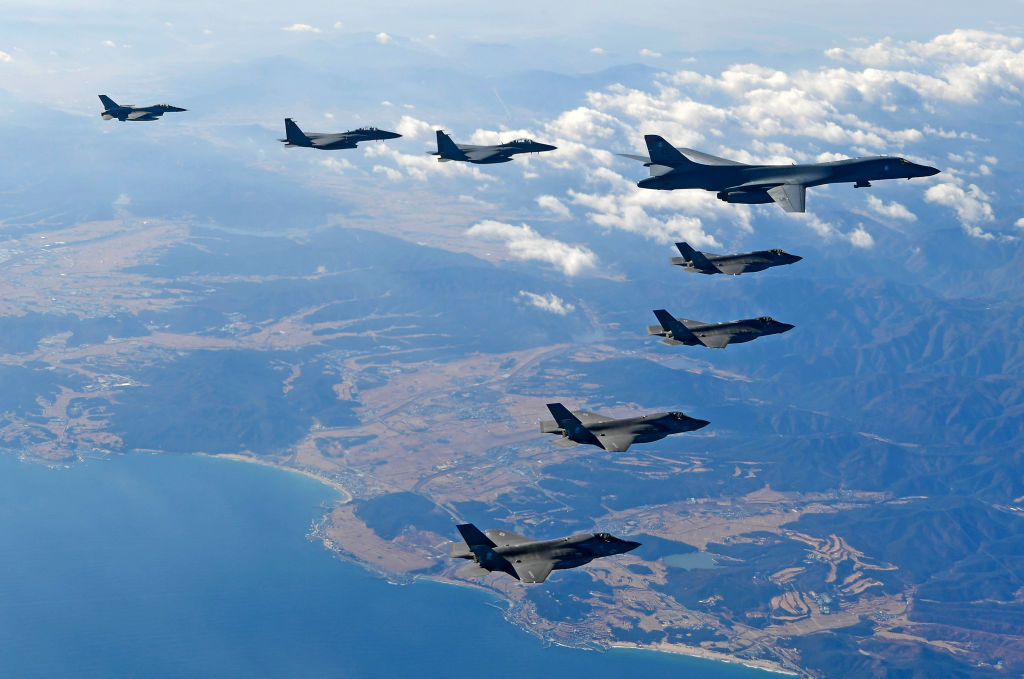Seoul’s new national security strategy flips the script, Korean style

South Korea today lives under an unprecedented tempo of North Korean missile tests and nuclear threats. The Yoon Suk-yeol administration therefore predictably identifies North Korea as its top security priority in its first national security strategy, released last week, just as previous governments did in 2018 and 2014. But the 2023 NSS is much more ambitious in scope and vision.
The document’s subtitle, ‘Global pivotal state for freedom, peace and prosperity’, has echoes of the NSS issued by the conservative Lee Myung-bak administration almost 15 years ago, which was titled ‘Global Korea’. The 2009 NSS at 39 pages may have been much slimmer than this year’s 107-page treatise, but it became the guidebook for Korea to assume a more influential role on the international stage on issues like free trade, multilateralism, peacekeeping and climate change.
The Yoon administration’s NSS similarly casts a wide view. This is reflected in the primacy given to assessing the security environment. Rather than following standard practice and starting with the situation on the Korean peninsula, section 2 of the 2023 NSS leaves it till last. The section instead begins with an assessment of the global security environment, noting that ‘crises that would typically occur over the course of centuries are unfolding simultaneously’. Recognising the eroding distinction between the global and local and the increasing connections between security and prosperity, it cites as key challenges external trends like the US–China rivalry, supply-chain disruptions—akin to national survival for a trading nation like South Korea—and non-traditional security threats.
Sections 3, 4 and 5 outline how Seoul plans to address these challenges: by strengthening its alliance with the United States and its strategic partnerships, stepping up its contributions to strengthening the international order, and improving its military capabilities. These sections draw on related policy documents released in recent months, including the December 2022 Strategy for a free, peaceful and prosperous Indo-Pacific region and the 2022 defence white paper.
From semiconductors to defence industry and low-emissions energy production, Seoul is more pivotal to the Indo-Pacific and the global balance of power than ever before. Sections 7 and 8 on economic security and emerging security threats acknowledge the lessons learned from recent experiences of economic coercion and supply-chain disruptions about how Korea’s rise might be cut short and the urgency of new collaborative partnerships.
Underpinning the NSS is the declaration that the core tenet for diplomacy will be to ‘implement both value-based diplomacy and pragmatic diplomacy advancing national interests’. But there’s a tension between those two goals, one that is an enduring theme in modern Korean statecraft born of identity’s clash with geography.
Section 6 addresses the inter-Korean relationship and is a reminder of how the two concepts uneasily co-exist. Yoon was elected partly in response to disappointment at the previous administration’s stalled efforts at inter-Korean reconciliation. Consequently, the section covers enhanced military deterrence measures and strengthened human rights advocacy for the North Korean people, but the rest of the section dwells on unanswered attempts at pragmatic engagement with the North.
The same tension is also manifest in Seoul’s posture towards China and Russia. The NSS is replete with references to freedom and democracy and Korea’s solidarity with countries sharing these values. While it’s obvious which countries aren’t on that list, the scope for plausible deniability is preserved. Thus, Korea’s relations with China can develop through ‘mutual respect and reciprocity’ while at the same time the government seeks to ‘prevent excessive reliance on certain countries for critical minerals’. Similarly, Korea ‘resolutely condemns’ Russia’s invasion of Ukraine while also wanting to ‘maintain stable relations’ with Moscow.
Striking the optimal balance between the pragmatic pursuit of national interests and living up to the values that it defines itself by is hard for any country, especially for a middle power in a hostile neighbourhood like South Korea. The Yoon administration’s NSS nonetheless sets out an ambitious vision for Korea’s place in the world that tries to look beyond its immediate surroundings.
In proposing a more balanced weighting of its strategic outlook, Korea will find a receptive international audience, including in Australia. But Seoul will need to keep in mind that, just as it has been careful in its signalling towards its autocratic neighbours to date, the values-based rhetoric also creates new hopes among its allies and partners. Managing those expectations will require equally deft diplomacy.
